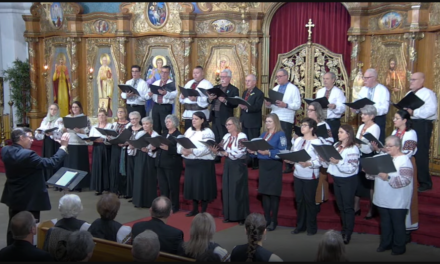Volodymyr Kish.
Ukraine is currently stuck at an impasse when it comes to pursuing a clear and speedy path towards reform that would bring it in line with what its supporters in Europe and the rest of the democratic world would like to see before they commit to further assistance. The Ukrainian government is making all the right noises and is investing a lot in a PR effort to persuade those countries that it has turned the corner on this issue, but it is obvious that the major players on the international political and economic scene are not buying it.
Promised financial support from the IMF is coming, but in small tranches just barely sufficient to keep Ukraine’s fragile financial state from falling into a critical state. The implied message is clear – the Ukrainian government is not moving either fast enough or effectively enough to overcome the pervasive graft, corruption and inefficiency that have plagued Ukraine since its independence twenty five years ago.
Foreign investors are also continuing to be cautious about entering the Ukrainian market. A recent survey by the European Business Association and Dragon Capital of Kyiv, showed continuing serious concerns about the level of corruption and lack of trust in the judicial system. Until those issues are sorted out, there will be little enthusiasm in investing in the Ukrainian economy.
So why, after the initial promise sparked by the Maidan, is the Ukrainian government moving so slowly towards finally realizing its potential as a western European country? The answer, as unpalatable it may be, is that there is not a majority consensus amongst the parliamentary representatives in the Verkhovna Rada that rapid and drastic reform is the way to go.
To be sure, there is a significant minority primarily composed of the younger generations that are strongly committed towards this goal. Regrettably, their representation in parliament only accounts for about a third of the seats. Although they are highly motivated and driven to clean up on twenty five years of political rot, they cannot command a sufficient majority of votes to push through the necessary legislation. All too often, they are forced to compromise with the second distinct power group which, for lack of a better term, I will call the establishment.
The establishment is composed of those elements of the oligarchic class that survived the Maidan and their supporters who represent the corporate and wealthy elite in Ukrainian society. This includes the large number of government bureaucrats at all levels that during the past twenty five years, managed to do quite well under the plutocracy that ruled Ukraine. These people have a vested interest in protecting their accumulated assets, much of which were gained under dubious circumstances, and as such, will do everything they can to mitigate or resist any reforms that might threaten their wealth, power and continued ability to game the system. Because they have huge financial resources at their disposal and effective control of the media as well as much of the government structures, they are able to engage in very effective PR to persuade the population that they are “reformers”, when in fact their motives are much more self-serving. This group directly or indirectly controls somewhere between a third and a half of the seats in the Verkhovna Rada.
The third group in parliament is a somewhat amorphous group that can be characterized as the reactionary element in Ukrainian politics. Here can be found the diehard regionalists, the communists, the radical nationalists, the crackpots, and those that long for the good old days of the Soviet Union when everything was predictable and “stable”. This group has very little to contribute in terms of progressive legislation, but can be very disruptive and destabilizing in resisting those who are trying to implement genuine reform.
As is evident, none of these three groups can command a majority in parliament, so any reform initiatives require at least some degree of compromise to cobble together the majority necessary to pass in parliament. This usually results in watered down legislation and laws of limited effectiveness that wind up disappointing almost everyone, and especially the majority of the Ukrainian population who do support rapid and significant reform.
Realistically, nothing much will change until the reformers are able to garner a majority of seats in the Verkhovna Rada. This will take another election or two. Until then, Ukraine will continue to limp along the difficult road towards a civil society and its desired place within Europe.
Share on Social Media




































